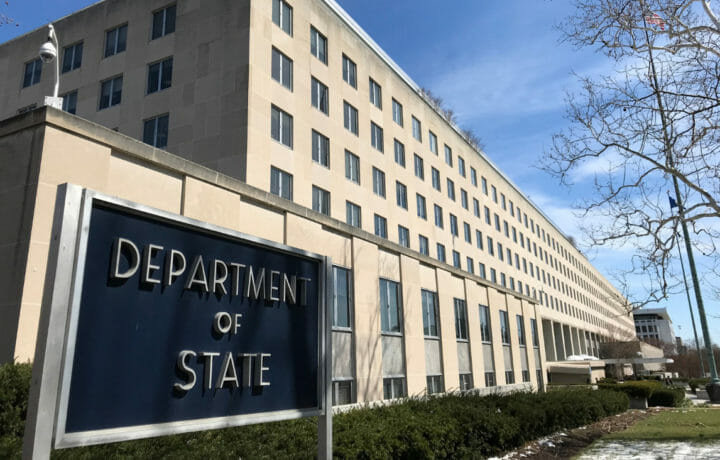The Department of State established its Bureau of Cyberspace & Digital Policy (CDP). The new bureau will focus on national security, economic opportunities, and “implications for U.S. values associated with cyberspace, digital technologies and digital policy.”
The announcement states three policy units will be formed and the CDP will be led by an Ambassador-at-Large. Jennifer Bachus, a career Senior Foreign Service officer is serving as Principal Deputy Assistant Secretary for CDP.
- International Cyberspace Security – Michele Markoff is Acting Deputy Assistant Secretary for the ICS unit
- International Information and Communications policy – Stephen Anderson is Acting Deputy Assistant Secretary for IIC unit
- Digital Freedom – Blake Peterson is Acting Digital Freedom Coordinator
In October 2021, Secretary Antony J. Blinken spoke of the future of the State Department and how the department was in a “near-constant state of renewal” and outlined his plan to modernize “the purpose and institution of American diplomacy.”
His plan consisted of five pillars, of which cyberspace and emerging technologies were highlighted. He commented then how cyber attacks “put our people, our networks, companies and critical infrastructure at risk.”
International Cyberspace Security
His October statement has proven prescient, as the Cybersecurity & Infrastructure Security Agency (CISA) issues a continuous stream of warnings for U.S. companies, especially those in the defense, intelligence, and infrastructure sectors.
In February, CISA, together with the FBI and NSA, warned all cleared entities that Russian-sponsored cyber units were actively targeting U.S. entities. Then in late-March, the Department of Justice (DoJ) revealed indictments for four Russian nationals, all government employees. Three of the four are officers within the Russian Federation’s Federal Security Service (FSB) and the fourth is associated with Russia’s Ministry of Defense for targeting critical infrastructure in the United States and 134 other countries. The Department is offering a multi-million dollar reward for their arrest.
International Information and Communications policy
Blinken described in his October address how the U.S. needs to be participatory in the shaping of global policies and standards as new technologies are discovered and implemented, to ensure U.S. entities have the opportunity to participate.
And lastly, he spoke about how the United States must ensure “technology works for democracy.” He continued, “Fighting back against disinformation, standing up for internet freedom, reducing the misuse of surveillance technology. And we want to promote cooperation, advancing this agenda tech by tech, issue by issue, with democratic partners by our side.
The CDP’s mission statement concludes with “The Bureau addresses the national security challenges, economic opportunities, and values considerations presented by cyberspace, digital technologies, and digital policy and promotes standards and norms that are fair, transparent, and support our values.”
The Department’s CDP will join the ranks of the NSA, CISA, FBI, DHS as desired contacts by all national industrial security programs, especially for those whose footprint includes an international business component.




